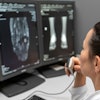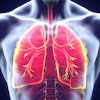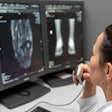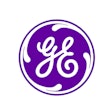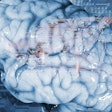A chest x-ray artificial intelligence (AI) algorithm developed by Agfa HealthCare has yielded promising results in a preliminary evaluation of nearly 5,000 chest x-rays by the Dubai Health Authority (DHA) in the United Arab Emirates (UAE).
The DHA is assessing the algorithm in its medical fitness centers, which provide mandatory medical fitness tests for expatriates in the UAE. In the first phase of validation that was completed in early January, the algorithm was 90% sensitive for detecting diseases on chest x-rays. Sensitivity increased to 95% after the second phase of validation in March, according to the DHA.
Over the course of the validation, the algorithm has processed approximately 4,900 chest x-rays. Two DHA medical fitness center radiologists reviewed the algorithm's findings and provided feedback on whether they agreed or disagreed with the results via an AI-enabled workflow. The algorithm was developed by Agfa in collaboration with VRVis, a research center for visual computing in Austria.
The DHA said it decided to use AI for x-ray imaging at medical fitness centers due to the scale of the service, as well as its expected benefits for enhancing work efficiencies and enabling optimum utilization of manpower. More than 2.1 million people visited one of 20 DHA-run medical fitness centers in 2017 to receive a medical fitness test, which is required for all expatriates to receive a new or renewal residency, employment, or education visa.
Prior to deploying the algorithm to all 20 medical fitness center locations, the DHA said it will continue to assess the technology's feasibility by implementing it at select sites. So far the results are very promising, said Dr. Mohammad Al Redha, director of the transformational office at the DHA.
"We will work together to establish an enterprise imaging strategy for the DHA to enable [multispecialty] medical imaging consolidation," he said in a statement. "DHA will establish a framework of [AI] workflow to augment radiology imaging, including in the area of detecting diseases, and we will collaborate to validate machine-learning algorithms in development."
Based on the preliminary results and the task-based rules automation capabilities of Agfa's enterprise imaging platform, the DHA said it's working on establishing a differentiated approach to AI by identifying key performance indicators. The authority said it believes the algorithm will yield a number of important benefits, including workflow automation for radiologists, the ability to quickly focus on suspicious chest x-rays, automated report templates, and improved turnaround times. It will also add more volume and capacity to the scope of the chest x-ray screening program, as well as provide improved patient satisfaction by delivering fast results and reports, according to the DHA.

